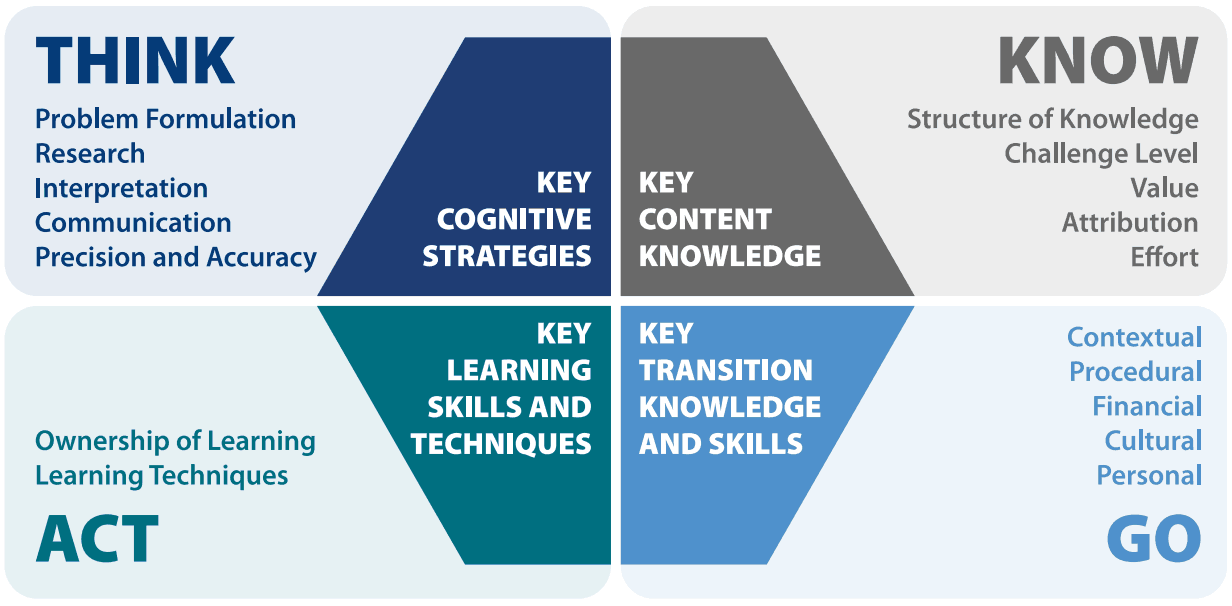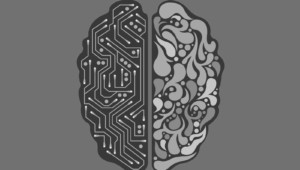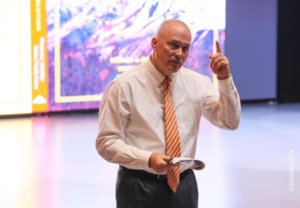The Bar Has Been Raised and The Rules Have Changed

This blog was originally published on Education Week’s Learning Deeply.
Download an app and you’re an Uber driver. Sign up on 99designs and you’re a freelance designer. Sign up for TaskRabbit and you can do chores for hire. Make something and sell it on Ebay. It’s never been easier to get work.
It’s never been easier to build an app and start a business. Application development platforms are powerful and easy to learn. The internet makes it easy to reach big audiences. Devices, computing and storage get cheaper every year.
But the new economy requires a lot of young people. The bar is higher and the rules have changed in five ways:
- Competitive: The advantages are now shared with almost half of the seven billion people on earth. Anyone with an internet connection can learn to code, build an app, and start a business. While talent and investment remain concentrate in innovative ecosystems, they are both becoming more widely available.
- Fast: Exponential technology and globalization are driving faster market cycles making the economy more demanding and requiring continuous learning.
- Projects: Robots are taking over routine tasks. Nonroutine work is organized into series of projects with discrete objectives, timelines, budgets and deliverables.
- Freelance: Soon, 40% of workers will freelance and those that work for big companies find a slim employment bargain and will move frequently for advancement. Whether freelance or corporate, most people will manage or work on diverse project teams.
- Value: It’s not what you know, it’s what you can do. Value is produced by initiating and sustaining complex work, applying design and problem solving skills in new and nonroutine situations, and to producing quality products.
The good news is that there’s never been a better time to make a contribution. The bad news is that quality education is the entry ticket–and that is not yet widely distributed.
Entry Ticket
What’s the entry ticket to this fast-paced idea-based economy? Reading, writing and problem solving have never been more important.
David Conley is the leading authority on what it takes to be ready for college and careers. He frames desired learning outcomes as Think (analyze, synthesize), Know (content & models), Act (take ownership, manage learning), and Go (navigation and decision-making).

Building on Conley’s work, the Hewlett Foundation developed a deeper learning outcome framework that includes six competencies:
- Master Core Academic Content
- Think Critically and Solve Complex Problems
- Work Collaboratively
- Communicate Effectively
- Learn How to Learn
- Develop Academic Mindsets
![]()
MyWays from Next Generation Learning Challenges is another outcome framework that builds on Conley’s work. It stresses productive habits, the creative application of knowledge, and navigational (wayfinding) abilities.
These new outcome frameworks stress the ability to manage yourself, your time, your attention, and your learning, and to work well with others in a complex and dynamic project-based environments.
Inequity: Old and New
Large inequities remain on old measures of reading, writing and math. Little progress (other than reading in the South) has been made in 50 years on narrowing the Black-White achievement gap. While difficult to measure, it’s quite likely that there are even more significant inequities when it comes to environments that encourage deeper learning outcomes.
Preparing for college and careers has never been more important. Almost 12 million U.S. jobs have been created post recession–and virtually all have gone to workers with at least some college according to a recent report.
The equity question is how to quickly raise the skill levels of kids in previously underserved communities while expanding access to the kinds of deeper learning experiences that will prepare them for a project-based world?
We’ve seen 10 school networks representing about 275 schools (two-thirds of them in school districts) that combine gap-closing personalized learning with inspiring project-based learning. The combination of the two approaches provides equity on ramps with opportunities to develop real career ready skills.
Becoming an Expert
If students spent five hours every school day engaged in high quality project-based learning, they would put in more than 10,000 hours from kindergarten to graduation–they just might become an expert project manager.
The idea that 10,000 of practice could make you an expert was popularized by Malcolm Gladwell’s book, Outliers, but it originated with a 1993 paper written by Anders Ericsson, a Professor at the University of Colorado, called The Role of Deliberate Practice in the Acquisition of Expert Performance. Ericsson says it’s not blind repetition but deliberate practice that makes all the difference.
When it comes to project-based learning, deliberate practice is described by the Buck Institute as Gold Standard PBL. That means that projects take on challenging real world problems with some student voice and choice; they require demanding demonstration of key concepts and high quality public products after critique and revision.
The world is changing fast. Personalized project-based learning is the best shot we have to build on ramps to the new economy.
This blog is part of “It’s a Project-Based World” series. To learn more and contribute a guest post for the series, see the Project-Based World page. Join in the conversation at #projectbased.
For more, see:
- Students and Employers Benefit from Real World Learning
- Is it a Project or an Activity? Project-Based Learning and its Cousins
- 3 Elements of Deeper Project-Based Learning
Stay in-the-know with all things EdTech and innovations in learning by signing up to receive the weekly Smart Update. This post includes mentions of a Getting Smart partner. For a full list of partners, affiliate organizations and all other disclosures please see our Partner page.








0 Comments
Leave a Comment
Your email address will not be published. All fields are required.